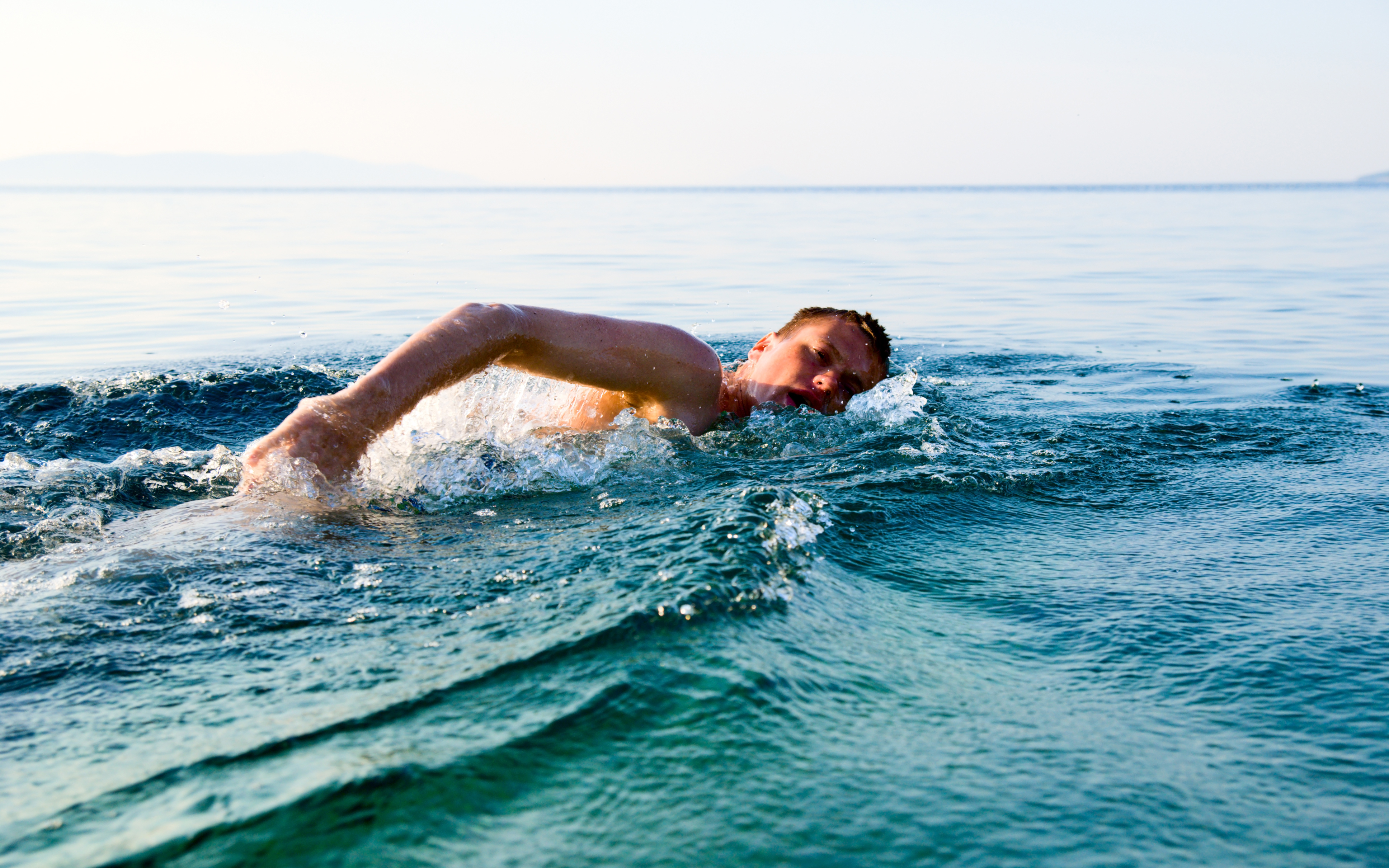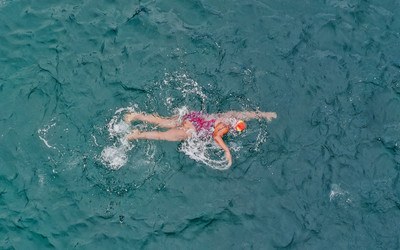Open Water Swimming: How to Swim Safely in the Lake, River or Ocean
10th Aug 2023
There is something undeniably alluring about swimming in natural bodies of water, such as lakes, rivers and oceans. The freedom of open water, the connection with nature and the sense of adventure can’t compare to the confined environment of a swimming pool.
However, it's important to remember that open water swimming presents unique challenges and hazards that demand caution and preparedness.
Before you jump in, you should understand the risks and know some essential safety tips for swimming in a natural body of water.
How to Swim in Open Water
Choose Safe Swimming Areas
Research the area where you plan to swim. Opt for designated swimming spots that are supervised by lifeguards, if possible. These locations are typically chosen for their safety and are regularly checked for potential hazards. Consider beach access and tides, recommends My Swim Pro. Avoid swimming in areas with heavy boat or jet ski traffic or where it is prohibited, in unfamiliar waters or places with signs of pollution, strong currents or other safety concerns.
Be Aware of Water Conditions
Keep a close eye on the water conditions before and during your open water swim. Check the weather forecast for potential storms, water spouts, lightning or changing tides. Watch for warning flags on the beach, as they indicate the current water conditions. If you notice strong currents, riptides or undertows, it's best to stay out of the water until conditions improve. Consider, too, that you may need to navigate other hazards, like logs, seaweed and debris.
Swim with a Buddy
Swimming in a lake or ocean with a buddy is not only more enjoyable but also significantly safer. In case of an emergency, they can call for help or provide assistance, if needed. Your “swim buddy” doesn’t need to be a swimmer; they could be in a kayak or paddleboard alongside.

Know Your Limits
Swimming in open water is different from a pool. Visibility will be limited, and your skill and stamina will be tested by waves and currents. Avoid swimming too far from the shore. Fatigue can set in more quickly than you expect. You will set yourself up for a dangerous situation if you're unable to make it back to shore.
Respect Wildlife
“Remember: you’re swimming in the wild when you’re in open water! These natural bodies of water aren’t controlled like your local pool,” notes Form. Some marine creatures are harmless, but others could pose a threat. Be cautious around jellyfish, stingrays or other potentially dangerous animals. Avoid approaching or provoking any marine life you encounter. If you see signs of sharks in the area, it's best to leave the water immediately.
Beware of Cold Water
Even in warm weather, open water can be significantly colder than you anticipate. Swimming in cold water can lead to hypothermia, which can be life-threatening. Ease into the water gradually and pay attention to your body's response. If you feel extremely cold or start shivering uncontrollably, exit the water immediately and warm up.
Wear Proper Gear
In all types of open water conditions, use an open water swim buoy for added visibility and safety. Consider wearing a wetsuit or other appropriate swim gear when swimming in colder waters. A wetsuit not only keeps you warm but also provides additional buoyancy, which can be beneficial for weaker swimmers. Additionally, use a brightly colored swim cap or floatation device to increase your visibility to others, especially boaters.
Learn Water Rescue Skills
Knowing basic water rescue skills can be invaluable in emergencies. Enroll in a water safety course to learn techniques such as treading water, floating and how to assist others in distress. These skills can give you the confidence to handle unexpected situations and potentially save lives.
Never Swim in the Dark or While Drinking
Night swimming in open water is highly unsafe! You can’t see obstacles or threats in the water. In addition, drinking and water activities don’t mix. Thousands of alcohol-impaired people drown each year while swimming or boating. According to the Centers for Disease Control (CDC) alcohol use was involved in up to 70% of drowning deaths among adolescents and adults.
Swimming in open water is an exhilarating experience, but it comes with inherent risks that differ from a controlled pool environment. Always prioritize your well-being and the safety of others, and you'll be able to relish the wonders of nature while making unforgettable memories in the water.
You may also like:
What Lifeguards Want You to Know Before You Hit the Beach or Pool
Looking for a Fun Sport with Real Health Benefits? Take a Swim
